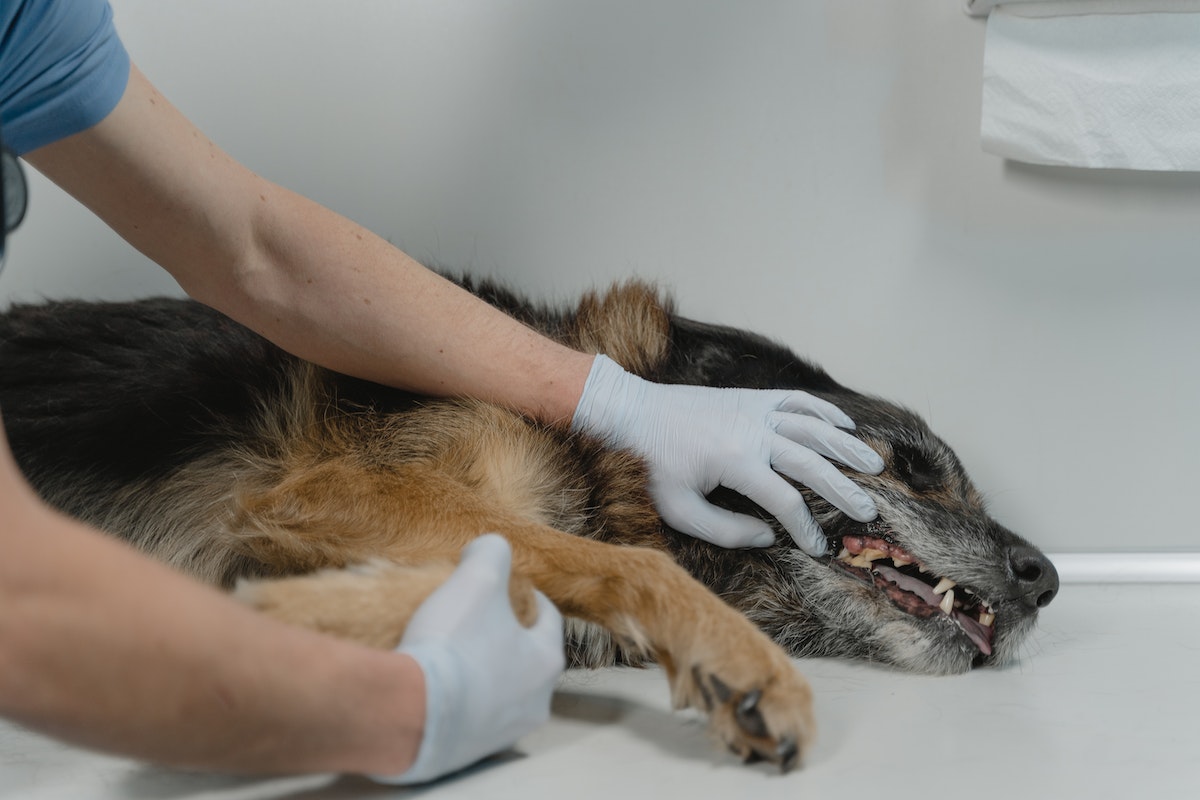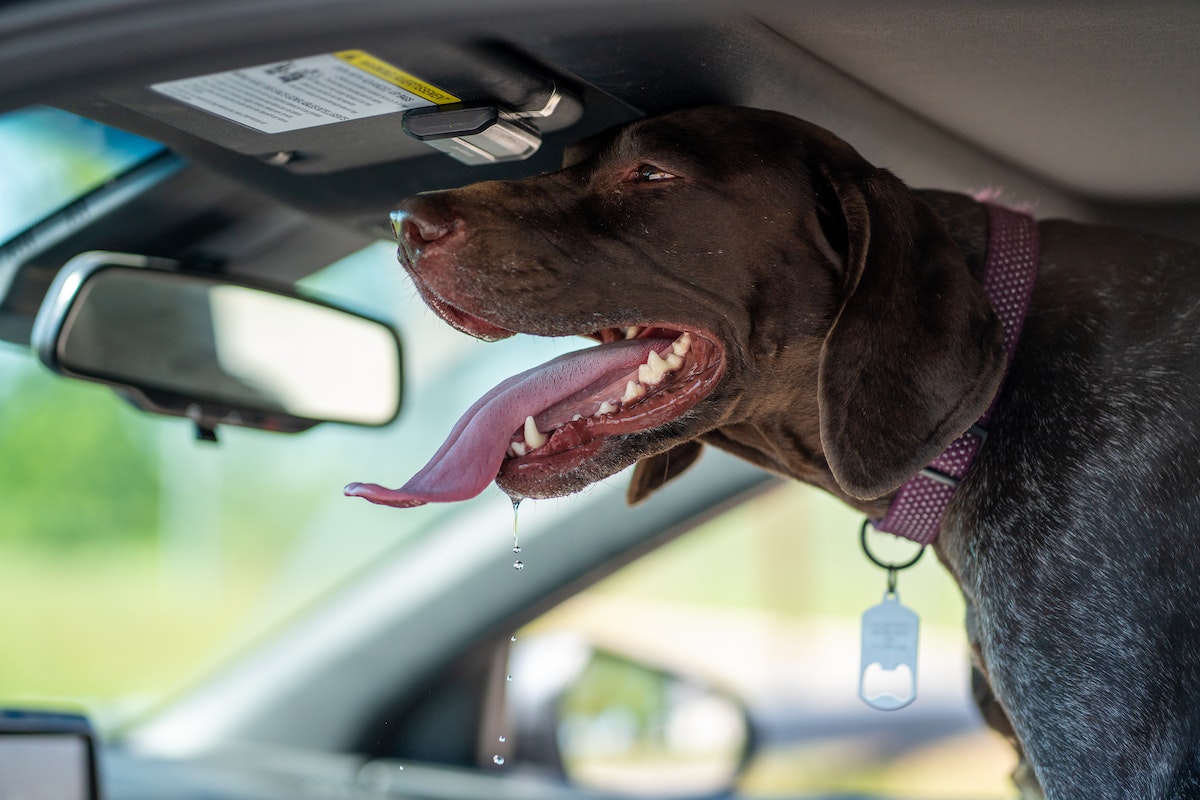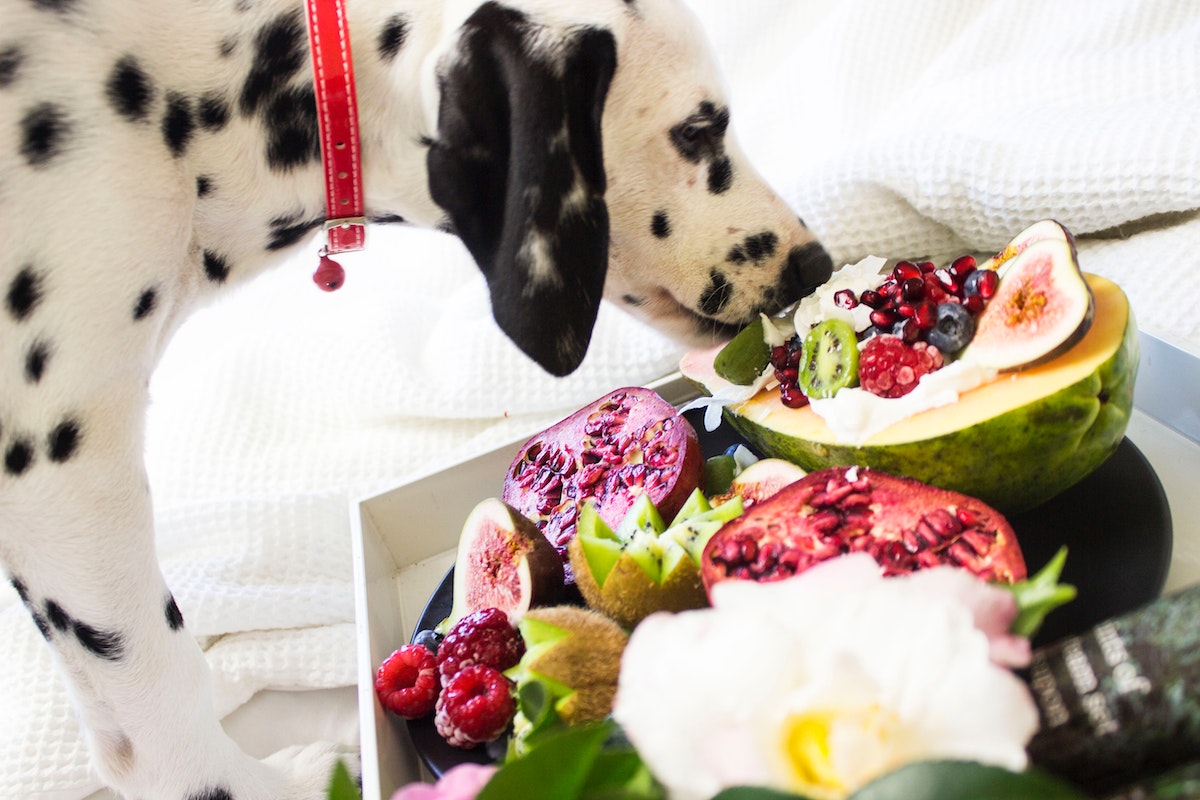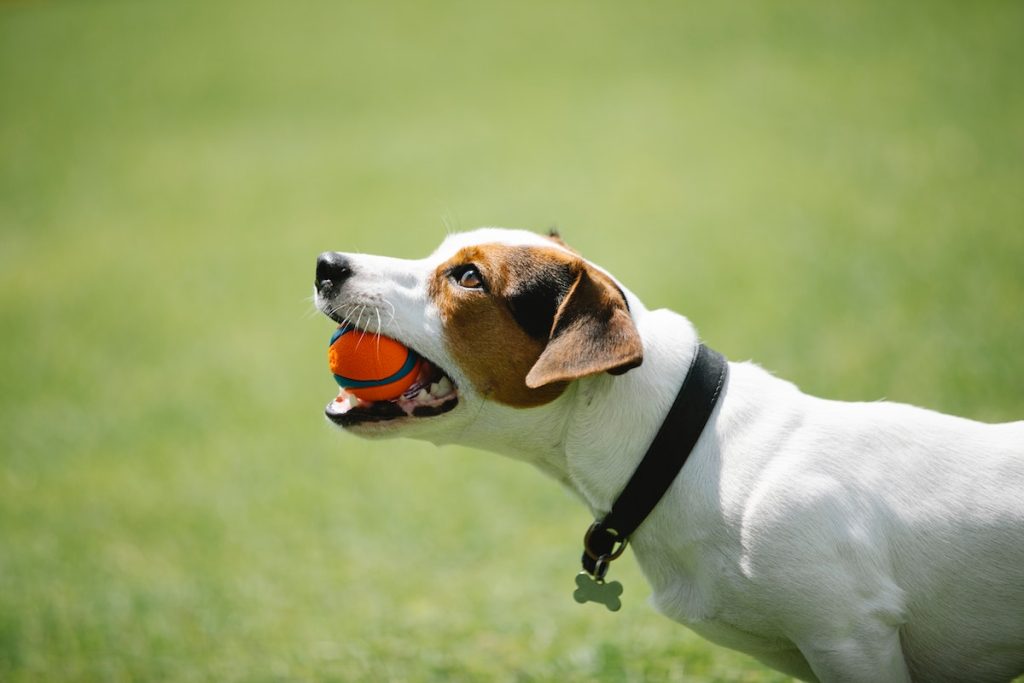Bad breath in dogs can be an embarrassing issue for pet owners. Not only is it unpleasant, but it can also indicate that something is wrong with your pup’s health. Bad breath in dogs can be caused by various factors, from poor dental hygiene to underlying medical conditions. Understanding the causes and symptoms of bad dog breath and the treatments available is essential.
This article will provide an overview of the causes, symptoms, and treatments for bad dog breath. You’ll understand why your pup might be dealing with stinky breath, how to help, and when to seek professional help.
- What is Bad Breath in Dogs?
- What Causes Bad Dog Breath?
- Common Symptoms of Bad Dog Breath
- Dental Health Issues and Bad Breath in Dogs
- Importance of Regular Dental Care for Dogs
- Preventing Bad Breath in Dogs: Tips and Practices
- When to See a Veterinarian for Bad Dog Breath
- Frequently Asked Questions
- 1) Can dental problems be a reason for my dog’s bad breath?
- 2) How can I determine if my dog’s bad breath is due to a medical condition?
- 3) What are some home remedies I can try to improve my dog’s breath?
- 4) Can I use human toothpaste to clean my dog’s teeth and freshen their breath?
- 5) What preventive measures can I take to keep my dog’s breath fresh?
- 6) Are there any specific dog breeds more prone to bad breath?
- Final Thoughts
What is Bad Breath in Dogs?
Bad breath in dogs is a common problem and can be caused by anything from dietary changes to poor oral hygiene. It isn’t normal for a dog to have chronic bad breath; if your pup’s breath smells like something died in its mouth, it’s time to investigate.
A normal dog’s breath should smell fresh and slightly sweet. If your pup’s breath is particularly stinky or has changed suddenly, this could be a sign of an underlying medical issue. Depending on what they eat, any dental issues, and their overall health, bad breath in dogs can range from mild to severe.
Addressing bad breath in dogs as soon as possible is essential. Not only does it make for a more pleasant relationship between you and your pup, but treating underlying causes can also help to improve their overall health and well-being. If your pup’s breath remains smelly, something more serious could happen. Detecting and treating underlying medical issues as soon as possible will help ensure your pup stays healthy and happy.
What Causes Bad Dog Breath?
If your pup has terrible breath, the first step is to determine its cause. There are several possible causes of bad dog breath, so it’s important to identify the underlying cause before you try to treat it. Common causes of bad dog breath include the following:
1. Dental issues

Your pup’s dental health, including its breath, plays a big role in its overall well-being. Some dental issues can also lead to infection, which can cause a nasty smell. For example, if a tooth is loose or decaying, the gums can become infected, leading to bad breath.
2. Poor oral hygiene
In addition to dental issues, poor oral hygiene can cause bad breath in dogs. If you don’t brush your pup’s teeth regularly, food particles can accumulate, leading to bad breath. Tartar buildup can also lead to a bacterial infection, causing bad breath. If you’re not brushing your pup’s teeth regularly, starting now is important.
3. Diet
Your pup’s diet can also affect its breath. If your dog is eating a processed diet or one high in fat, it can lead to bad breath. Some foods can also cause digestive issues, further contributing to bad breath. It’s essential to ensure your pup eats a balanced and nutritious diet to support their overall health, including their breath.
4. Infection or disease
Bad breath can sometimes be a sign of an underlying infection or disease. Various disorders can cause bad breath, including the following:
a. Bacterial infection
This type of infection is often caused by poor dental hygiene. Bacteria can accumulate in the gums, making them inflamed and leading to bad breath. Different types of bacteria can cause different smells, ranging from bad to incredibly unpleasant.
b. Fungal infection
A fungus, such as yeast, can cause this type of infection. Fungal infections can cause bad breath and should be treated by a veterinarian. Some fungal infections can even spread to other parts of the body, so getting treatment as soon as possible is important.
c. Kidney or liver disease
These diseases can lead to a buildup of toxins in the body, leading to bad breath. These diseases be serious. They can also be life-threatening, so seeking veterinary care is essential.
d. Diabetes
Bad breath can also be a sign of diabetes in dogs. It causes an imbalance in your pup’s blood sugar, leading to a sweet smell from their breath. Diabetes can also lead to other health issues, so getting them checked out by a veterinarian as soon as possible is important.
5. Lifestyle
Another cause of bad breath in dogs is lifestyle. If your pup isn’t getting enough exercise, it can lead to a buildup of toxins in the body, leading to bad breath. In addition, if they are exposed to second-hand smoke or other irritants, this can also contribute to bad breath. Depending on the lifestyle, a change can sometimes help to improve your pup’s breath.
Common Symptoms of Bad Dog Breath
In addition to identifying the cause of bad breath in dogs, it is also essential to be aware of the symptoms that come with it. Depending on the severity of the underlying cause, various symptoms are associated with bad dog breath. Some of the most common include:
1. Foul-smelling breath
This is the most apparent symptom of bad breath in dogs. If your pup’s breath smells like something died in its mouth or is particularly stinky, they have bad breath. You should also be aware of changes in your pup’s breath, which could indicate an underlying issue. For example, if their breath suddenly smells sweet, this could be a sign of diabetes.
2. Excessive Drooling

If your pup drools excessively, it can indicate an underlying dental issue. This could lead to bad breath, so taking your dog for a checkup is essential if you notice this symptom. Some dogs may also drool from consuming something unpleasant-smelling, such as garbage.
3. Loss of Appetite
If your pup isn’t eating as much or has lost its appetite, this could indicate an underlying medical condition. Bad breath can also sometimes be a symptom of certain conditions, such as kidney or liver disease, leading to decreased appetite.
4. Weight Loss
Weight loss is another symptom associated with bad breath in dogs. This could indicate an underlying condition if your pup is losing weight for no apparent reason. Some of these conditions can lead to bad breath, so getting your dog checked out is important.
5. Discharge from the Mouth
If your pup suffers from an infection, it may cause a discharge from the mouth. This can be yellow or green and may have a foul smell. It’s essential to seek medical attention if you notice this symptom, as it can indicate an underlying issue.
It’s important to address bad dog breath, as it can indicate an underlying issue with your pup’s health. If the cause of your pup’s bad breath isn’t addressed, it can lead to further complications. For example, bad breath can be a sign of dental issues, and if they aren’t treated, the infection can spread to other parts of your pup’s body.
Additionally, bad breath can be a sign of infection or disease and, if not treated, could put your pup at risk for more serious health issues, such as kidney or liver failure. These conditions can be life-threatening, so you must seek professional help if you suspect your pup has a serious underlying condition.
Monitoring your pup’s breath and being aware of any changes is important. A veterinarian should check for abnormalities to ensure your pup is healthy and happy. You can also take steps to prevent bad breath in dogs, such as brushing their teeth regularly and ensuring they get enough exercise.
Dental Health Issues and Bad Breath in Dogs
Most pups have health issues that can lead to bad breath. Their dental health is closely linked to their overall well-being, so taking good care of your pup’s teeth is essential. Brushing their teeth regularly and scheduling regular vet checkups can help prevent dental problems, which can help reduce bad breath. Some of the common oral health issues that can lead to bad breath include:
1. Plaque buildup
This is a common issue and occurs when bacteria accumulate on the teeth. Plaque is a sticky substance that can trap bacteria and cause bad breath. It can also lead to other issues, such as tooth decay.
2. Tartar buildup
Tartar is a hard substance that accumulates on teeth over time. It can make it difficult for bacteria to be removed and can lead to bad breath. If left untreated, it can also lead to gum disease.
3. Gum disease
Gum disease occurs when the gums become inflamed and infected. It makes it difficult for bacteria to be removed and can lead to bad breath. If left untreated, it can cause more serious issues.
4. Tooth decay
Tooth decay is caused by bacteria accumulating on the teeth and breaking down enamel. It can cause bad breath, as well as pain and sensitivity.
5. Mouth cancer
Mouth cancer is a rare but serious condition. It can cause bad breath, as well as other symptoms such as lumps on the gums or a change in the color of the gums. It’s essential to get this checked out by your vet if you notice any suspicious changes.
6. Periodontal disease
Periodontal disease is an infection that affects the gums and teeth. It is caused by plaque and tartar buildup, leading to bad breath. Compared to other dental issues, this can be more severe and cause more serious health issues due to the infection.
If left untreated, these dental issues can cause more serious problems. Many dog owners are surprised to learn that an underlying dental issue causes their pup’s bad breath. This can be easily prevented if you take good care of your pup’s teeth. Their overall health can be affected if these issues are left untreated, so getting them checked out by a vet is essential.
Importance of Regular Dental Care for Dogs
The importance of regular dental care for dogs can’t be understated. Not only does it help to prevent bad breath, but it can also improve their overall health. You want to ensure your pup’s teeth are healthy and free from infection, which regular dental care can help prevent. Regular vet checkups are essential, and brushing your pup’s teeth at least once a week is recommended.
Regular dental care can also help to prevent other health issues. If dental problems are caught early, they can be treated more easily before becoming bigger. This will help keep your pup healthy and ensure they don’t suffer from unnecessary pain or discomfort.
And, of course, brushing your pup’s teeth regularly can help to prevent bad breath. It removes the bacteria that cause bad breath and ensures your pup’s teeth remain healthy. This is an integral part of their well-being and should be done regularly. You should also schedule regular vet checkups to ensure your pup’s teeth are healthy and infection-free.
Preventing Bad Breath in Dogs: Tips and Practices
There are many ways to prevent bad breath in dogs. By taking good care of your pup’s teeth, you can help to keep their breath fresh. Here are some tips:
1. Regular brushing
Regular dental care for dogs consists of brushing their teeth daily and taking them for regular checkups. Brushing their teeth daily can help to remove plaque and tartar buildup, preventing bad breath. There are particular kinds of toothpaste for dogs that you can use; never use human toothpaste as it can be toxic to pups.
Try to make brushing a part of your pup’s routine, as they can get used to it more easily. Praise them and give them treats when they do a good job – this will make it more enjoyable for them. Use a soft-bristled toothbrush and gently brush, as their gums can be sensitive.
2. Dental checkups
Taking your pup for a dental checkup at least once a year is essential. This allows the vet to detect any issues early on and take action before they become more serious. During the checkup, the vet will inspect your pup’s teeth and gums and look for any signs of infection or damage. If your pup has any underlying conditions, the vet may recommend additional treatments such as antibiotics or surgery.
3. Professional cleanings
The vet may recommend professional cleaning if your pup has any serious issues. This can help to remove plaque and tartar buildup and prevent further issues. This procedure is done under anesthesia and should only be performed by a professional. They will use special tools to clean and polish the teeth, removing buildup.
4. Healthy diet

A healthy and balanced diet is essential for your pup’s overall health, including their breath. Avoid processed food and stick to a nutritious diet. You should also limit treats and snacks, as they can cause plaque buildup on the teeth. Some foods, such as carrots and apples, can help to clean their teeth.
5. Regular exercise
Exercise is essential for your pup’s overall health and can help to keep their breath fresh. It helps to stimulate saliva production, which helps to remove bacteria from the mouth. Most dogs need at least 30 minutes of exercise daily, so make it part of your pup’s daily routine. You can also teach your pup fun games and try different activities together.
6. Proper hydration
Ensuring your pup stays hydrated is also essential. Water helps to flush out bacteria and can help to prevent bad breath. Make sure they have access to fresh, clean water at all times. Bring some water for them if you’re traveling or going on a long walk.
7. Appropriate chew toy
Chewing is a natural part of being a pup, and it can help to keep their breath fresh. Chew toys help to remove bacteria from the mouth and can help to reduce plaque buildup. Choose a toy appropriate for your pup’s size, and ensure it doesn’t have any sharp edges. This is one of the best remedies for dog breath.
8. No smoking
Second-hand smoke can cause bad breath in dogs. Dogs may be exposed to smoke if you or someone in your household smokes. It’s essential to avoid smoking around your pup, as it can lead to bad breath and other health issues.
9. Oral rinses
Oral rinses can also help to keep your pup’s breath fresh. They contain ingredients such as chlorine dioxide, which can help to reduce the bacteria in the mouth. You should always consult with your vet before using any oral rinse, as they can contain ingredients that may not suit your pup.
10. Keep trash away
Garbage and other food items should be kept away from your pup. If they get into the trash, they may consume something that can cause bad breath. You should also avoid letting them chew on unfamiliar plants in your yard. Ensure you only have dog-friendly outdoor plants that won’t cause any harm.
When to See a Veterinarian for Bad Dog Breath
You don’t have to panic if you smell something coming from your pup’s mouth. It could be just a result of their diet or something they ate, and it will go away soon. But suppose the bad breath persists, or you notice other symptoms, such as drooling, loss of appetite, or weight loss. In that case, visiting a veterinarian is essential, primarily if your pup is exhibiting any signs of pain or discomfort.
A vet can help to identify the underlying cause and rule out any serious issues. They will examine your pup’s teeth, gums, and mouth to see any signs of infection or damage. They may suggest treatment options or refer you to a specialist for further evaluation if necessary.
Due to their anatomy, some of the coolest dog breeds ever may also be more prone to bad breath. If your pup is a brachycephalic breed, such as a Pug or Bulldog, they may have difficulty breathing more due to their short snouts. This can lead to excessive drooling and bad breath, so watching for any symptoms is essential.
A timely diagnosis is important, as some conditions can lead to more serious issues if left untreated. So if your pup has bad breath and you’re concerned, visiting your vet is important. They can assess the situation and recommend the best course of action. Many underlying conditions are easily treated, so getting your pup checked out as soon as possible is essential.
Frequently Asked Questions
1) Can dental problems be a reason for my dog’s bad breath?
Dental problems can cause bad breath in dogs. If your pup has underlying issues with their teeth or gums, they may have bad breath. Take your pup for regular checkups and brush their teeth regularly to help prevent dental problems.
2) How can I determine if my dog’s bad breath is due to a medical condition?
If the bad breath persists or you notice other symptoms, such as drooling, loss of appetite, or weight loss, visiting a veterinarian is essential. They can help to identify any underlying medical conditions and recommend treatment options.
3) What are some home remedies I can try to improve my dog’s breath?
Regular brushing your pup’s teeth is the best way to improve their breath. You can also give them dental treats or chews to help remove plaque and tartar buildup. A healthy diet and regular exercise can also help keep their breath fresh.
4) Can I use human toothpaste to clean my dog’s teeth and freshen their breath?
Never use human toothpaste for your pup. Human toothpaste can be toxic to dogs; some may even contain sugar, leading to further dental problems. Only use toothpaste designed for dogs. These have ingredients that are safe for pups.
5) What preventive measures can I take to keep my dog’s breath fresh?
Brushing their teeth daily, taking them for regular checkups, and limiting treats are all essential preventive measures. Always ensure they have access to fresh water and give them dental chews or treats if necessary.
6) Are there any specific dog breeds more prone to bad breath?
Some breeds, such as pugs and bulldogs, may be more prone to dental problems, which lead to bad breath, due to their short snouts. But any breed of dog can have bad breath, so it’s important to be aware of any changes in your pup’s breath.
Final Thoughts
Several underlying medical issues can cause bad breath in dogs. It’s essential to take good care of your pup’s teeth and ensure they get regular checkups. Brushing their teeth regularly can help keep their breath fresh and prevent dental issues, improving their overall well-being. If you suspect your pup has a serious underlying condition, it’s essential to seek professional help. You can ensure they stay healthy and happy by taking preventive measures and monitoring your pup’s breath.

